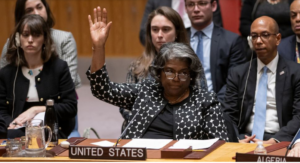Pakistan-Iran tensions surge: How India will stay safe?

Pakistan-Iran tensions surge: regional stability at risk.
Recent days have witnessed a sharp deterioration in the relationship between Pakistan and Iran, marked by a series of reciprocal military strikes and a surge in diplomatic tensions. This sudden downturn has ignited fears of a broader conflict between the two neighboring nations.
Key Developments:
- January 16, 2024: Iran conducts airstrikes in Pakistan’s Balochistan province, targeting alleged hideouts of militants associated with the Balochistan Liberation Army (BLA), a separatist group advocating for an independent Balochistan along the shared border.
- January 17, 2024: In retaliation, Pakistan launches airstrikes on targets in Iran’s Sistan-Baluchestan province, claiming to have struck hideouts of “terrorist groups” responsible for attacks on Pakistani soil.
- January 18, 2024: Both countries recall their ambassadors and suspend high-level visits as part of a tit-for-tat diplomatic exchange.
Causes of the Escalation:
- Balochistan Insurgency: The Balochistan region, straddling the border of Pakistan and Iran, has grappled with insurgency for decades. Both nations accuse each other of sheltering and supporting separatist militants, particularly the BLA.
- Historical Rivalry: Rooted in their creation in the 1940s, Pakistan and Iran have a long history of mistrust and rivalry, exacerbated by sectarian differences, with Pakistan being Sunni-majority and Iran Shia-majority.
- Regional Influence: As major regional powers, Pakistan and Iran harbor competing interests in the Middle East, occasionally influencing their bilateral relations.
Pakistan and Iran war- Ramifications of the Tensions:
The current escalation poses significant risks to regional stability, including:
- Escalation to Full-scale Conflict: The ongoing tit-for-tat airstrikes could potentially evolve into a larger military confrontation.
- Regional Instability: Tensions may spill over into other regional conflicts, such as the ongoing civil war in Yemen.
- Humanitarian Crisis: A military conflict could result in a humanitarian crisis, displacing millions and leading to shortages of food and other essentials.
Impact for India -Positive Impacts:
- Weakening Pakistan: If the tensions escalate significantly, Pakistan could be drawn into a protracted conflict with Iran, diverting resources and attention away from its rivalry with India. This could provide India with some breathing room on issues like Kashmir and cross-border terrorism.
- Boosting Chabahar Port: India’s development of Chabahar Port in Iran as a gateway to Afghanistan and Central Asia could become more crucial if overland routes through Pakistan become disrupted due to the tensions. This could enhance India’s economic and strategic presence in the region.
- Iran’s Focus on Internal Issues: Internal instability in Iran might force the country to prioritize its own affairs over supporting anti-India forces in Afghanistan or Pakistan. This could potentially reduce India’s security concerns on its western borders.
Negative Impacts:
- Regional Instability: A wider conflict between Iran and Pakistan could destabilize the entire region, potentially impacting oil supplies and trade routes, which could harm the Indian economy.
- Refugee Crisis: If the tensions escalate into a full-blown conflict, a large number of refugees could flee towards India from Pak or Iran, putting additional strain on the country’s resources and infrastructure.
- Proxy War Involvement: The possibility of external powers, like the United States or Saudi Arabia, getting involved in the conflict through proxies cannot be ruled out. This could draw India into an unwanted regional proxy war.
- Disruption of Trade: Trade between India and both Pak and Iran could be disrupted if tensions further escalate and overland or sea routes become unsafe. This could impact Indian businesses and consumers.
International Response:
The international community has called for restraint and dialogue to peacefully resolve differences between Pak and Iran. Entities like the United Nations and the United States, along with other nations, are urging both sides to prevent further escalation and actively work towards de-escalation.







